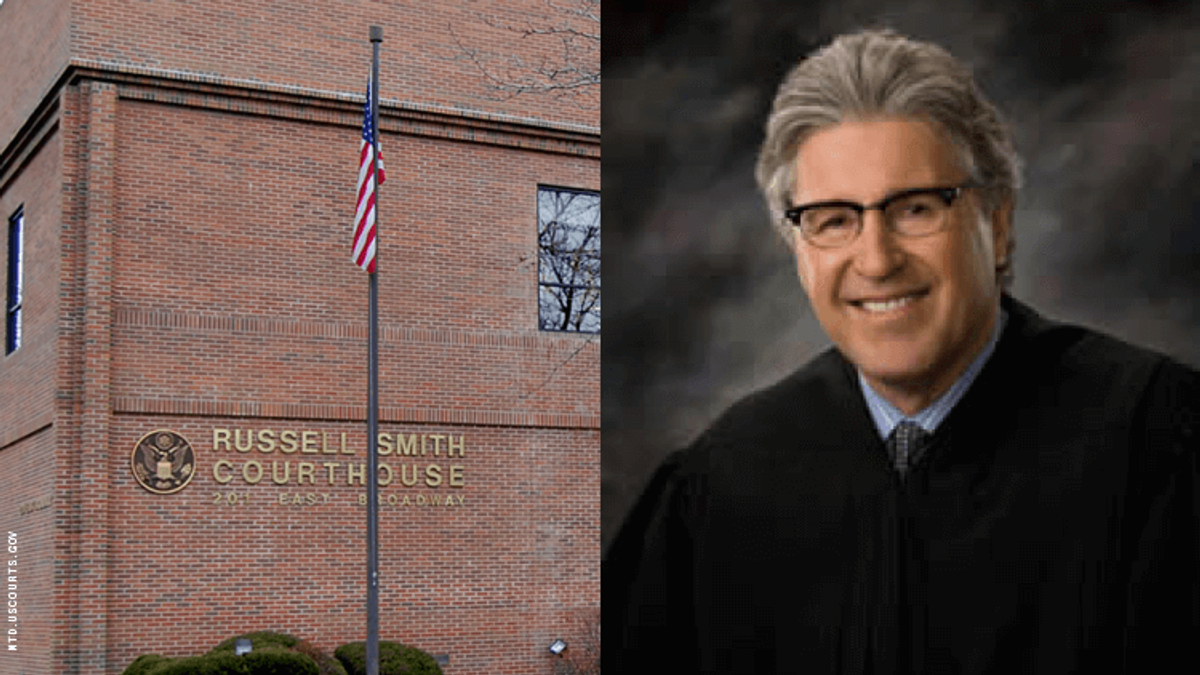All Rights reserved
By continuing to use our site, you agree to our Private Policy and Terms of Use.
The reputation of a man who served seven years in prison for consensual gay sex is on the line as a federal judge prepares to rule on whether Montana residents charged under outdated sex laws when they lived in other states must remain on Montana's sex offender list.
U.S. District Court Judge Dana L. Christensen is presiding over the case in which Randall Menges, formerly of Idaho, is arguing that he should be removed from Montana's sex offender list as Montana has no law against consensual same-sex activity, Montana's Missoulian newspaper reports. Idaho, where Menges was convicted of "crimes against nature" in 1994, still forces people convicted of sodomy and oral sex to register as sex offenders. The trial was held Tuesday.
Menges, now 45 and living in Butte, Mont., was charged under Idaho's Crimes Against Nature law when he was 18. The law bans anal and oral sex between consenting adults.
Menges was arrested after officers said he and two 16-year-old boys had "engaged in sexual activity with each other," according to Menges's lawsuit, though the police agreed the conduct was consensual and the state rarely prosecutes 18-year-olds who engage in consensual sex with teenagers a year or two younger than them. Menges served seven years in prison for the encounter before being placed on probation. He was required to register as a sex offender.
Trending stories
The Idaho law against oral and anal sex still exists today, and those convicted of sodomy or oral sex are still required to register as sex offenders in the state, even though the U.S. Supreme Court in 2003 invalidated laws against consensual sex between adults (the Montana legislature removed its own ban on same-sex activity a decade after the SCOTUS ruling). The American Civil Liberties Union is currently suing the state, arguing that Idaho's law is unconstitutional. Menges is also a plaintiff in that case.
Because the law still stands in Idaho, Montana state law says he must remain on the sex offender registry; Montana's legislature amended its own laws on sex crimes in 2005 so that anyone required to register as a sex offender in another state must register in Montana if they move there.
According to Montana Assistant Attorney General Hannah Tokerud, the case isn't about whether the sodomy laws are valid but about respecting other state's laws. "It hinges on whether he is required to register in Idaho," she said.
Matthew Strugar, Menges's attorney, argued that the law upholds the country's ugly history of homophobia. "This case involves the lingering effects of centuries of homophobic 'sodomy' prohibitions," he said in the complaint. Menges says his conviction has haunted him throughout his life, keeping him from obtaining jobs and housing.
Christensen did not rule on the case from the bench but said he will return with a ruling "quickly."
Idaho has a long history of weaponizing laws against gay and bi men. During the 1950s, there was a sweeping investigation of the alleged "homosexual underground" that existed in Boise, the state's capital. Police alleged that a ring of gay men were having sex with over 100 young men and boys.
When the investigation was over, over 1,500 people had been questioned. Sixteen of them faced charges, and 15 ended up serving prison sentences. Most of the charges involved men having sex with other consenting adults, but the case led to a moral panic in the city about gays preying on young boys.


















































































Here's our dream all-queer cast for 'The White Lotus' season 4